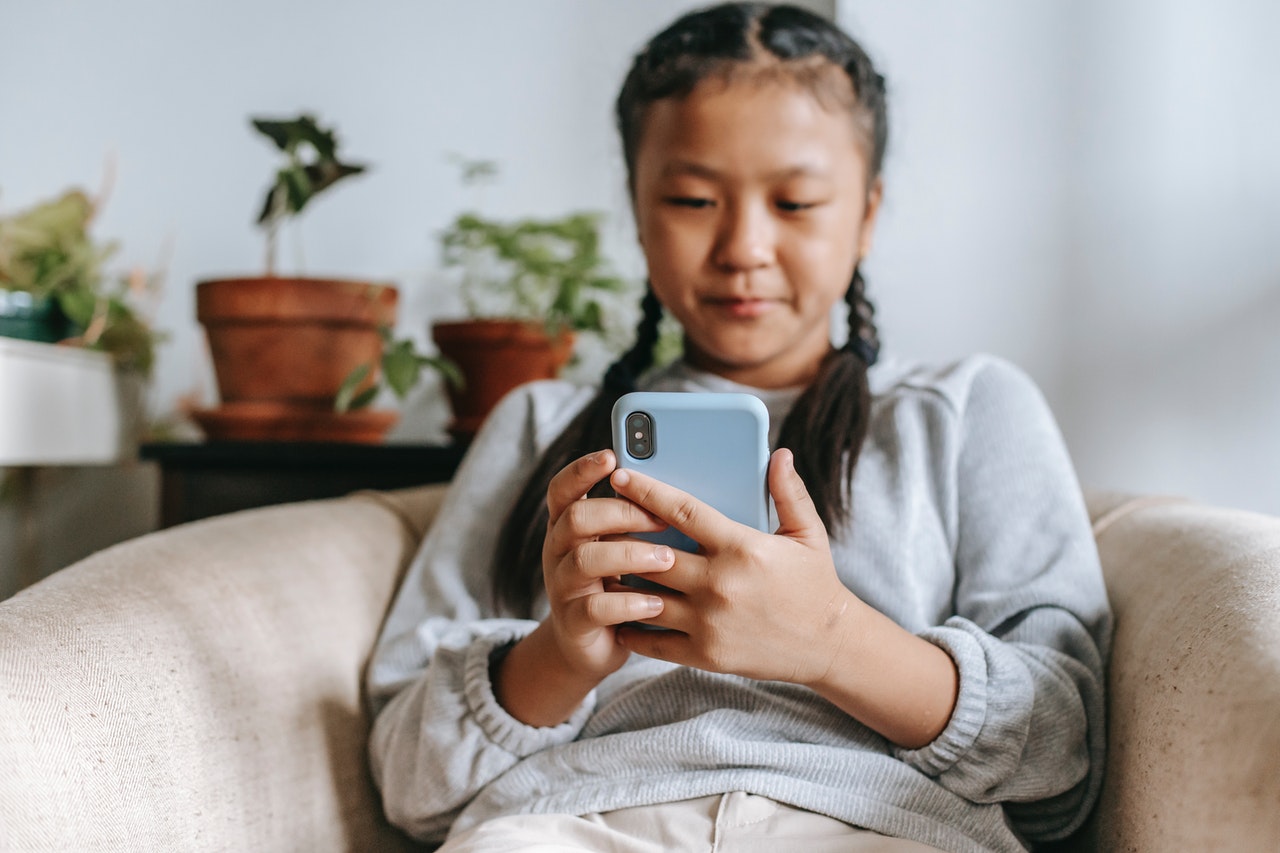In Asia, we sometimes think online security for kids is a Western problem. Many parents believe that only kids from dysfunctional families would be drawn to pornography, online dating, gambling, etcetera.
The truth is, all children are curious, and with the Internet saturated with sex, nudity, and gambling, it’s not hard to see how kids can easily get drawn in. These issues may be happening in your own home without you realising it.
In addition to that, we’re now more virtually connected than ever before in this pandemic. It has caused us to realise how social media and the Internet can magnify online dangers during this time. Perhaps we need to evaluate how the Internet is shaping our children.
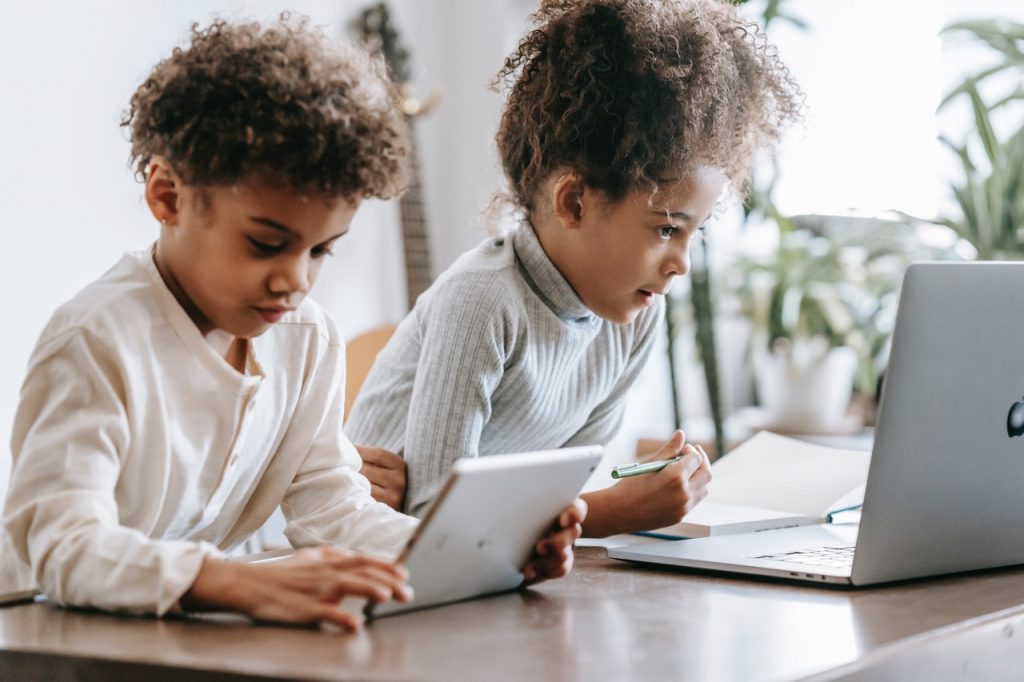
Photo by Marta Wave from Pexels
Unlimited access
Most children have complete access to a Chromebook, iPad, phone or a device where they do homework and attend online classes. Children typically have classes from two to eight hours a day. As parents, it gives us peace of mind to assume that these hours are being spent as they should – paying attention to the teacher and interacting with their classmates.
But as we’ve learned, kids are very clever. They’ve learnt it’s easy to access sites that we may not approve of. Most times as parents who love our own children, we don’t suspect the dedicated violin player, the nice kid, the shy one, or the top swimmer, to be overstepping their boundaries when using the Internet.
But remember, curiosity pulls at all kids.
We know it’s a difficult season. All parents are working and so the kids are at home, trying to learn and stay focused in front of a screen on their own. But have you ever seen your child quickly flick from one browser to another, the moment you walk into the room?
To go exploring all corners of the Internet for themselves, all your child needs is your trust, incognito browsing, guest profiles, a few seconds to delete browsing history… perhaps a VPN, an extra Gmail, and a bit of privacy.
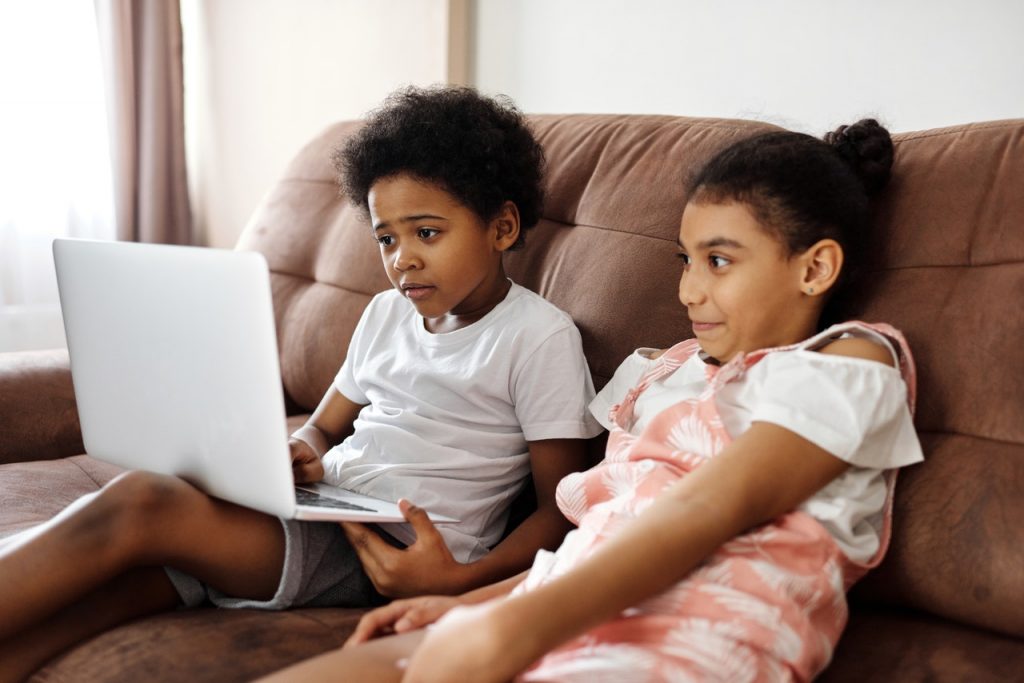
Photo by August de Richelieu from Pexels
Understanding their curiosity
As bizarre as it may sound, children and teens ARE capable of online gambling or checking out Pornhub. As children, their brains are still developing. Being exposed to a winning gambling streak or pornographic images can release a feel-good chemical in their brains called dopamine. At their tender age, it is difficult to resist this intensely-charged curiosity.
It’s almost like a drug to their system, and it’s incredibly addictive.
Your child could be a boy or a girl below age ten, and still be secretly dating someone online in a different country, sexting, watching violent content, accessing gambling sites, downloading naked images, or watching Squid Game for the 10th time. There could even be a helper or a grandparent looking after them at home while you’re back at the office, but none of these factors will necessarily stop a child’s curiosity.

Photo by mentatdgt from Pexels
Rosy
Carla never realized her 13-year old daughter, Rosy, was involved with a man from another country. Rosy had been sexting for months, and her parents never realised till much later. Initially, Carla didn’t even know what sexting was.
One day while she was cleaning up Rosy’s room, she found Rosy’s Chromebook left open. Carla wanted to turn it off but decided to quickly look at Rosy’s Instagram account to see who her followers were. She stumbled onto her chat history and realised Rosy had been chatting and exchanging sexual photos with a man. They had both shared photos, videos, and intimate messages for months. He looked much older than her daughter, who was only a year six student.
When Carla confronted Rosy, she denied everything. She said she was only chatting with friends. Only with the evidence in her hand did Rosy eventually admit to it all.
Even after that incident, Rosy would continue to lock herself in the bathroom and send photos to that man.
It’s been almost impossible for Carla and her husband to help their daughter end the addiction and it was difficult to know who to ask for help because she didn’t want to embarrass her daughter. Weeks later, this is not a resolved issue but something they are working through as a family.
Xandar
Xandar’s parents worked from their offices everyday, leaving Xander at home in the care of his aunt. During English lessons, his aunt caught him playing Roblox many times while online class was still in session.
When his parents got home, Xandar’s dad looked through his son’s school-issued iPad and realised that Xandar had also visited some porn sites during the middle of the day. They confronted Xandar, who said he was indeed playing Roblox and “only because he finished his assignment and the teacher was repeating instructions.” Regarding the porn site, Xandar said he accidentally saw it when he was searching for images of the human body for science class. One thing led to another.
He had questions about a girl’s anatomy and wanted to check it out and “it had only happened five times”.
The truth was, Xandar had intentionally been playing games during class and was viewing porn during the school day for the past few months. His parents found out the truth and are now getting counselling for Xandar.
The enemy isn’t our children and their curiosity: it’s the pornography, online gambling and sexting that we need to fight against. These stories are all real, and the agony each family goes through is tangible.
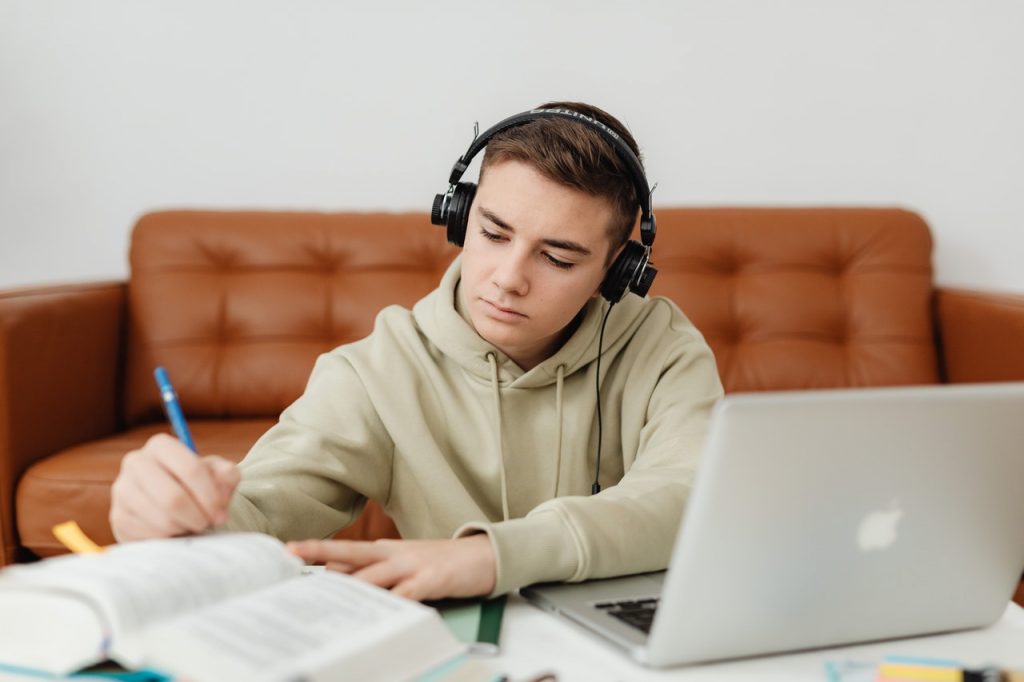
Photo by Karolina Grabowska from Pexels
What we can do, together
There are different experiences across different families, but all parents can unite in being intentional so we learn to recognise when our children are dangerously multi-tasking or being exposed to things they shouldn’t be.
Here are some questions we can ask ourselves to be more aware of what our children are experiencing or to better prepare ourselves to manage things:
- Have you talked to your child about healthy interactions, good images, pornography, and what happens if their chat is full of swearing and dirty jokes from classmates?
- Do you know who your child is chatting with on Instagram and how quickly men ask any female (child, teen or adult) for nude photos?
- Do you know what child settings are and how to activate them? You can learn to adjust router settings and filter which sites are allowed.
- Is your child’s school talking about online security?
- Does your child have an extra Gmail account that’s not connected to the school?
- Have you seen your child turning off Zoom videos during lessons?
- Are you able to see your child’s screen at all times?
- Do you know your child’s password for their machine and accounts? If your son or daughter doesn’t give it to you, ask yourself why it’s a secret, or ask them.
If any of these resonate with you, trust your instincts and be alert. All kids are affected, and the problem isn’t them. It’s what’s available out there. We need to be so vigilant about what our children are being exposed to in these times. By making time to calmly investigate or have honest conversations with your child, you’ll be able to help them make better choices and be there for them during these fragile years.
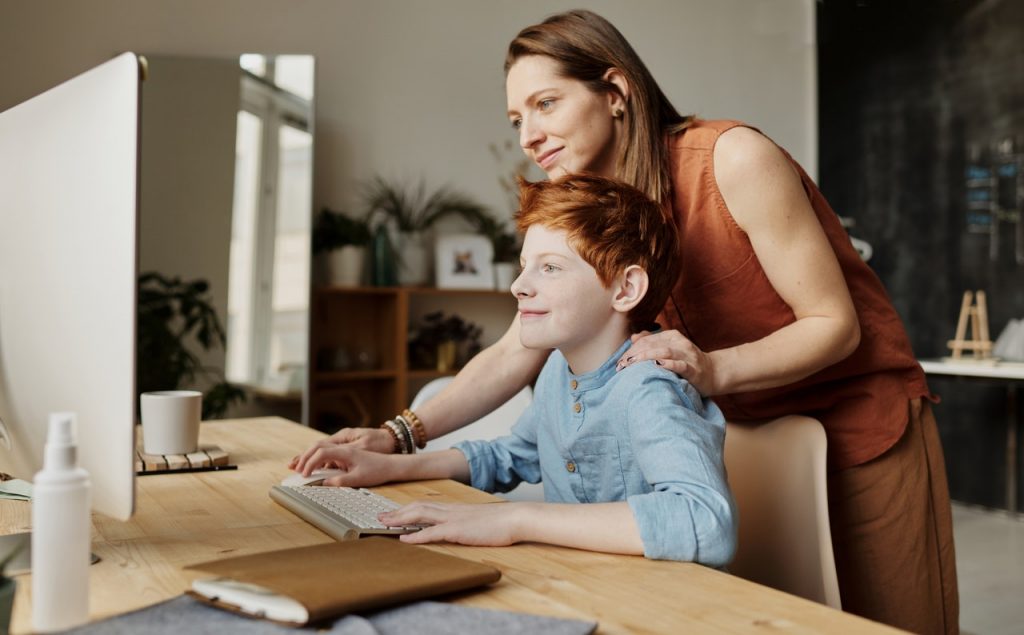
Photo by Julia M Cameron from Pexels
Manage those devices
Ask your children’s school what they are doing to protect kids from pornography, online gambling and sexting. Most devices all have parental settings. You can monitor what children are looking at as well as change settings on your home router.
Another key step is to keep devices out of bedrooms and not let kids have phones or school issues devices after lights are out. Find out what you can do to help keep your child safe. Have conversations with your kids about online predators and pornography.
Sadly, It’s no longer a case of “if they see it” but ” when they do.”
Or better yet, put the devices away and do something fun together. Your child needs your attention and help walking this road of social media and other addictions. It’s not easy but by creating some new boundaries, you can connect with your child, and reclaim your energetic, happy child back again.
Remember, we don’t need to walk this path alone. Please reach out to friends or to us if you need help or a listening ear along the journey. It takes a village to parent our children. Let’s keep our eyes and ears open and not respond with shame or disgust, but with understanding, compassion and love.
This article has been published by our Comma writer, with the permission of the original author who has chosen to remain anonymous for privacy reasons.
Featured image by Katerina Holmes from Pexels

